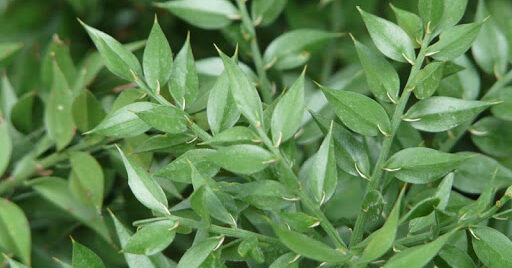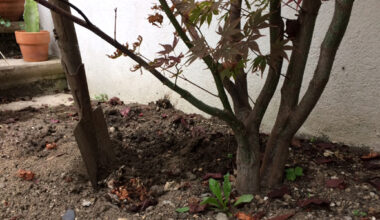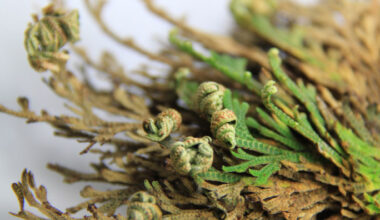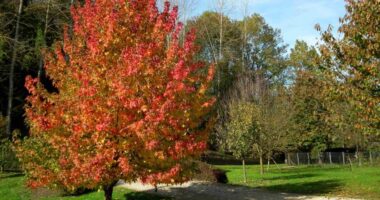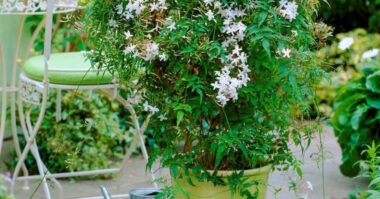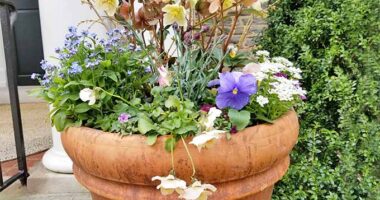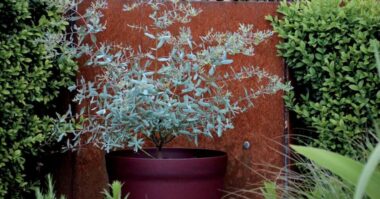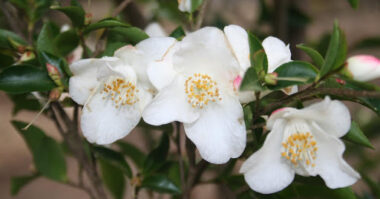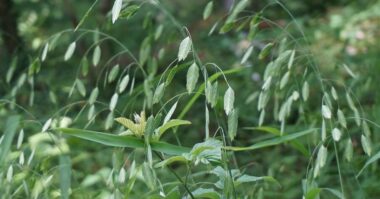The israeli ruscus plant, is a small original shrub with evergreen “foliage”. Rare, it offers surprising small flowers inserted in the “leaves” in spring, which then give pretty red berries.
Contents
Where to plant the Isreali Ruscus plant?
As ruscus do not need a lot of light, avoid exposure to direct sunlight, which would make the tongue fragon sweat and dry out! Place it in the shade, or in half-shade, but not in full southern exposure.
The israeli ruscus plant appreciates humid conditions for the substrate. It only becomes drought tolerant in the soil once it is well established. Thus, a well-drained soil (of a rather small nature) is mandatory to avoid water stagnation, especially in the approach of winter and frost.
The tongue fragon tolerates poor as well as rich soils, and while it prefers a slight acidity, a slightly calcareous and basic soil does not interfere too much.
It is ideal for containers or cultivation in poor soil conditions; moreover, it can be grown indoors (beware of the thorns formed by the “real” leaves).
When to plant the Israeli Ruscus plant?
Plant in spring or autumn. Prefer spring for a container culture.
How to plant the Isreali Ruscus plant?
Outdoors, dig a hole deep and wide enough to accommodate the rootball extracted from the sales jar.
In containers, choose a deep and wide pot at least 22 inches deep and wide.
The substrate itself does not require any noticeable quality, use simple horticultural potting soil. However, it is important to provide a drainage layer at the bottom: clay balls or pebbles are suitable.
Cultivation and maintenance of the Israeli Ruscus plant
The tongue fragon has average water needs. Water it regularly to keep the soil constantly moist and don’t let it dry out between waterings.
No fertilizer is required.
When grown in pots indoors, it will need to be kept cold in winter. Transfer to an unheated room or a cold greenhouse should be considered; otherwise it will not flower the following year.
Diseases, pests and parasites
Tough leaves are ignored by animals, even microscopic ones. In fact, the israeli ruscus plant does not fear much except bad growing conditions (and more…).
Multiplication of the Israeli Ruscus plant
As it is almost impossible to have female plants, sowing is a method not very feasible.
Propagation of the tongue brittle is natural, because the rhizomes emit rejects: recover these rejects (already “leafy”) in spring with a fork and spade. Replant them immediately in their permanent location.
It is possible to divide a plant that is well established in the ground, more than 5 years old, but it is a big job. Division is nevertheless easy with a container culture, as the extraction of the seedling is quite easy. Cut the plant without care and replant immediately.
Summary
A very tolerant bushy shrub, urban pollution will not harm it. Plant it in a shady garden to brighten up a difficult planting area.
There are few plants of better quality than the israeli ruscus plant for shade and which is resistant to deer: take advantage of it if a woody edge needs to be planted on the ground.
